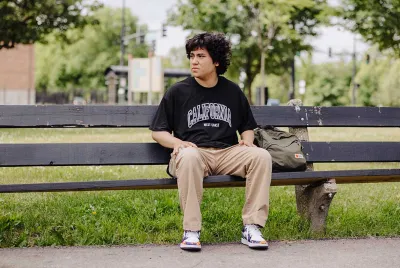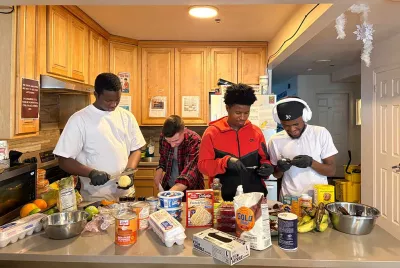Kicking Off Mental Health Awareness Month with a Panel Featuring Platinum Recording Artist Chelsea Cutler

May is Mental Health Awareness Month, and to kick it off and underscore how important mental health care is to young people overcoming homelessness, Covenant House partnered with the REPUBLIC Action Committee to host a stigma-busting panel and live performances by Covenant House youth at REPUBLIC Records’ Chelsea NYC studios.
“Stigmas around care try to say something’s wrong with you because you need to talk about your feelings,” said Shanai, a Covenant House youth ambassador and one of the performers at the event. “Like it’s not okay to complain because there’s always someone having a worse day. But I’m having this day, and it hurts.” She said being able to talk about your feelings alleviates pressure and keeps you from "blowing up on others.”

Platinum recording artist Chelsea Cutler was among the panelists who addressed the invitation-only audience, sharing data and experiences that not only challenged prevailing myths but offered ways to act constructively with and for young people dealing with trauma and other mental health issues.
Mental Health Support Is Not a Luxury
“Tonight is a reminder that mental health support isn’t a luxury — it’s a lifeline,” Chelsea said. One of the positives about working in the music industry is that you are often surrounded by people, so there is a lot of human connection and a lot of discussion about creativity. Those types of creative conversations are really affirming for me. My biggest piece of advice for any young artist at Covenant House struggling with mental health is to prioritize yourself and your artistic vision because that's what makes you special.”
The panel also included Ulta Beauty executive Keri Thomson-Yhlen, adolescent and adult psychiatrist Dr. Lydia Sit, and Chief Program Officer Leslie McGuire of Covenant House.
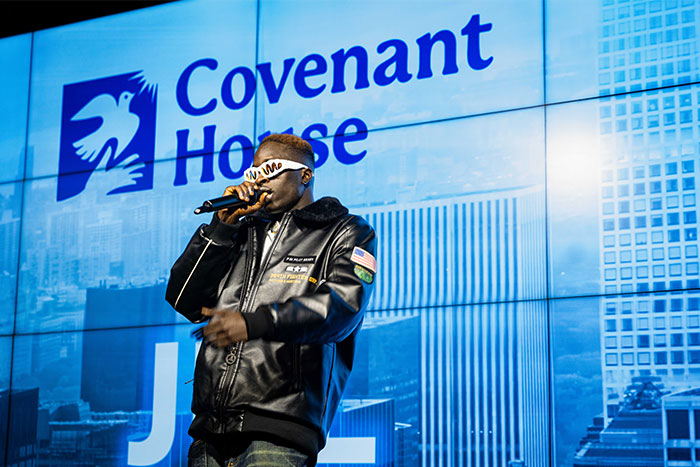
Leslie shared that while there are many complex and intersecting routes to homelessness, mental health is a significant risk factor for many young people who make their way to Covenant House, one that may be exacerbated by the experience of being unhoused.
“Among young people experiencing homelessness, 69% report behavioral challenges and 29% experience substance-use issues,” she said. “When left undiagnosed or untreated, this can lead to severe symptoms like panic attacks, suicidal behavior, and psychosis, which can impair a young person’s functioning and disrupt their development.”
Mental Health Care is Essential to Ending Youth Homelessness
Covenant House’s strategic goal is to end youth homelessness as we know it, and responding to youths’ mental health needs is essential to achieving that goal. “We’re not going to end youth homelessness without tackling mental health challenges,” Leslie said.
Dr. Lydia Sit noted that mental health challenges begin early and that 40% of high school students in the United States report persistent feelings of sadness and hopelessness. Suicide, she said, is the second-leading cause of death of young people ages 10 to 24.

Barriers to meaningful mental health care persist in our society, and that, she said, “leads to a disproportionate impact on those without stable support systems.” Barriers include limited availability of services, stigma around seeking help, disconnected systems of care, and long wait times for treatment, she added.
Keri Thomson-Yhlen of Ulta Beauty said her company appreciates the strong connection between beauty and well-being. “Through Ulta Beauty Charitable Foundation, we work to empower holistic well-being, and a big focus is on reducing the stigma around mental health,” she said.
“We’re investing in areas to help all — particularly, women and teens in underrepresented communities — to unleash possibilities and build coping skills to be more resilient and confident in the face of life’s challenges,” she said.
Ulta Beauty associates have volunteered at Covenant House sites in New York, Chicago, and virtually in art therapy sessions, they’ve done hair and makeup for youth attending the Pride Prom, and created affirmation journals with our youth. Keri is a member of the Covenant House New York board of directors. “We’re confident in Covenant House’s work and have seen the impact firsthand,” she said.
Mental Health Care at Covenant House: The Way Forward
“While they’re with us is the perfect window to change the trajectory for youth with significant mental health challenges,” Leslie said. Covenant House is investing in enhancing our mental health program so that young people have the tools they need to ensure their experience of homelessness is rare, brief, and nonrecurring.
To provide the quality of mental health services that will accomplish this means removing as many barriers to care as we can, Leslie said, “enabling Covenant House young people to access a full range of services and supports on-site, from individual and group counseling to art and music therapy, all the way up to psychiatry.”
It means, too, providing staff with critical training to expand the interventions we’re able to offer to help youth address and manage their mental health and substance-use challenges. Such training, she said, allows for a “one-size-fits-one" approach tailored to each young person’s needs.
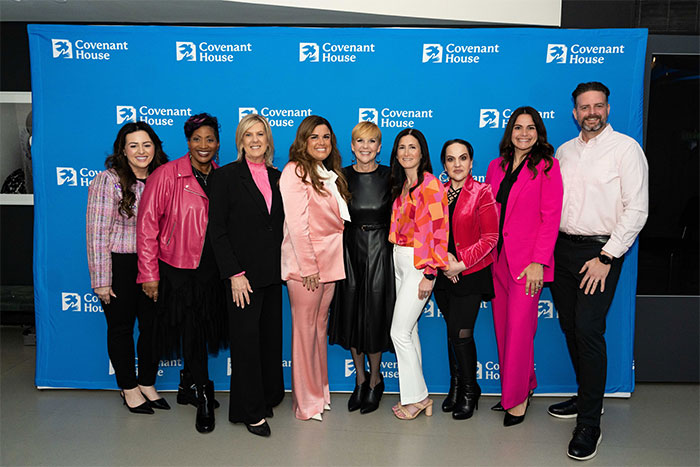
““We meet our young people where they are, and sometimes they go forward, but sometimes they go backward. We stick with them and don’t ever give up or leave them.”
Shanai said that at Covenant House, she appreciates how much staff believe in the youth. Knowing the mental health support was there, she said, feels like a restriction lifted. Like you can dream your life big again.”
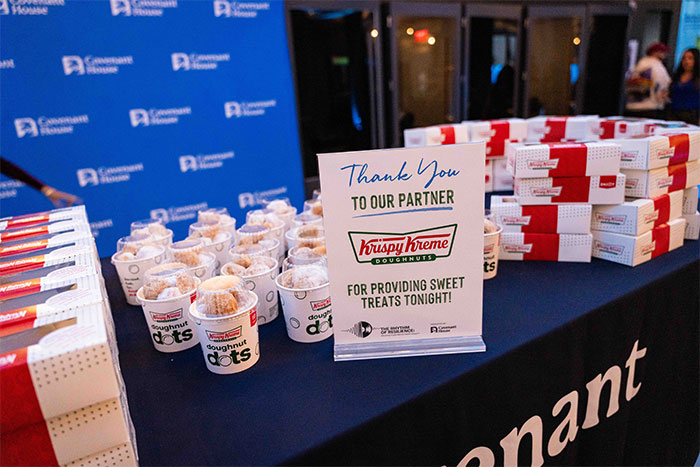
For Jul, a Covenant House youth who, like Shanai, performed at the event, said, “Covenant House changed my life. When I came here, it was hard. I wanted to give up. But they helped me a lot. They care about people. They let kids have a life.”
Chelsea Cutler offered the final word on the panel, and it represents a way of life that goes well beyond Mental Health Awareness Month, and that is to be authentic. “Whether you are representing yourself, the brand you are building, or an already established company, show people who you truly are and have open and honest conversations with anyone who is listening.”
You might also like...
Shelter Is Only the Beginning
From crisis to care: Find out what it's like when a young person enters our doors.
